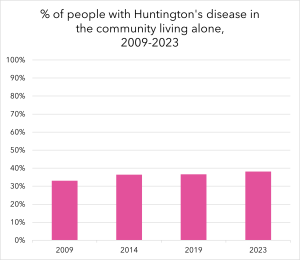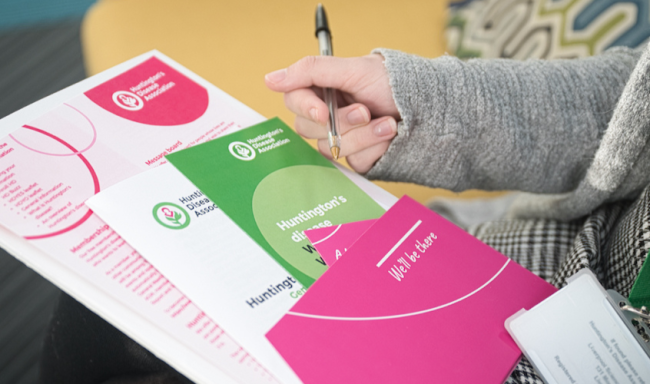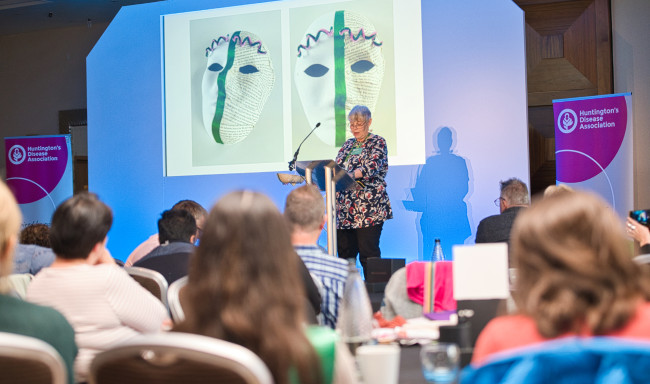Our colleagues at DeNPRU Exeter did a policy research project about people living alone with a progressive neurological condition.
Huntington’s disease is one of the conditions they looked at.
They studied:
- How many people are living alone
- What research and recommendations exist around living alone
- What people with lived or professional experience of living alone with Huntington’s disease think
Key findings:
- More people live alone with Huntington’s disease than we think: in 2023, 38% of all people with Huntington’s disease living in the community lived alone. This has increased from 2009 (see Figure 1).
- People registered with an urban GP practice or living in a more deprived area were slightly more likely to live alone.
- There is almost no research evidence about living alone with Huntington’s disease: this is a significant gap.
- Carers at a distance can struggle to be involved and informed as services do not communicate with them. However, with Huntington’s disease there may be times when living apart helps repair the caring relationship.
- Professionals are frustrated by systems and services which do not understand Huntington’s disease.

Figure 1
“Huntington’s is progressive over a very long period of time. I think you actually can live on your own very well… But there is always going to be a point where that changes and who recognises that change?” - lived experience consultee
Key recommendations:
- Knowing the numbers to better plan support
- Reducing inequalities in access to services
- Providing flexible, personalised, co-ordinated care
- Educating the health and care workforce and the public
- Facilitating access to financial support
- Strengthening community responses
- Supporting informal carers
- Reviewing research priorities and inclusion
“Probably the hardest bit for us is when people are still deemed to have capacity, but are making very, very risky decisions, and everyone’s almost waiting for a crisis to happen.” – professional consultee





